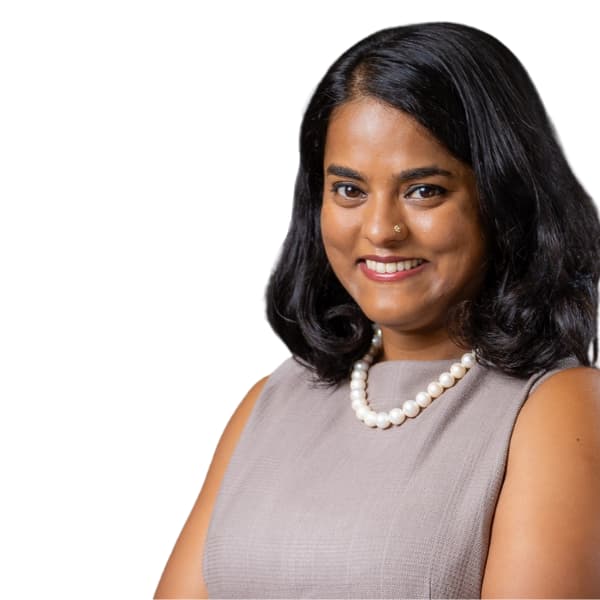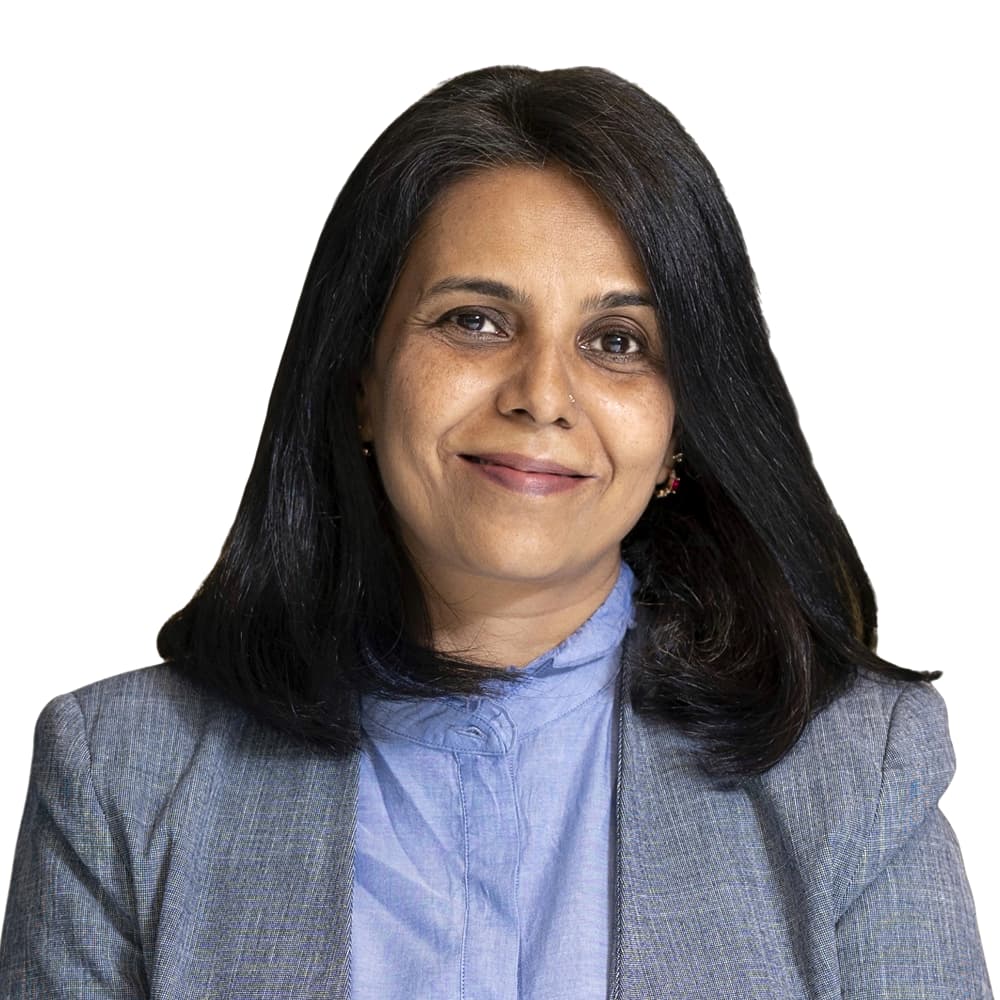From DIFC to Raffles Place: Indian UHNWIs Weigh Dubai Against Singapore

“Both generations align on one thing: the need for robust, forward-thinking jurisdictional choices.”
“Both generations align on one thing: the need for robust, forward-thinking jurisdictional choices.”
“Both generations align on one thing: the need for robust, forward-thinking jurisdictional choices.”

Introduction
For India’s ultra-high-net-worth individuals (UHNWIs), the decision between Dubai and Singapore as a base for trusts or family offices is nuanced. Both cities are attractive to the Indian wealthy, but the calculus goes beyond spreadsheets and statutes, and involves considerations of legacy, belonging, and the promise of a future that feels secure.
Breaking Old Perceptions
There was a time when Dubai was viewed with skepticism by Indian families. Concerns about political instability and religious restrictions lingered in boardrooms and family discussions. However, over the past decade, Dubai has rewritten its narrative and become more open. Some examples of measures that have made the city more welcoming include: the introduction of a Monday-to-Friday workweek, the removal of local ownership requirements, and the introduction of the Golden Visa. Indian families now see Dubai as a place where they can plant roots, not just park capital.
Singapore’s Rising Bar
Singapore, on the other hand, has long enjoyed a reputation for robust governance and a sophisticated financial ecosystem. Its common law framework makes it a natural fit for trust structures, and its reputation for stability is unshakable. Yet, as the city-state tightens immigration policies and costs rise, some Indian families find the path to Singapore more challenging than anticipated. While experienced families navigate these hurdles, newcomers often rely on perception rather than research, making expert guidance essential.
The New Harbors
In a world increasingly concerned with transparency and substance, the allure of previously popular destinations like Mauritius and the BVI has waned. Indian families, particularly those focused on long-term legitimacy and multigenerational wealth transfer, now lean toward jurisdictions that offer a blend of regulatory strength and lifestyle appeal.
Singapore and Dubai, with their clear infrastructure and improving global reputations, are now frequently considered safer. Importantly, both cities allow families to physically establish presence, which is important from a tax perspective. However, subtle distinctions remain: Singapore’s legal system is rooted in common law, making it more conducive for trust structures. Dubai, on the other hand, is still governed largely by civil law and only recognises trusts in the DIFC region. Whether a family is comfortable with this restriction depends on the specific needs of the family: how global they are and what their long-term priorities are.
Trust in the Details
The type of trust structure an Indian family adopts can vary widely based on their jurisdiction, objectives, and risk appetite. For resident Indian families, discretionary trusts are often preferred for offshore assets, assuming that the family is comfortable relinquishing control to a trustee. These trusts allow for flexible distributions among beneficiaries, in addition to being opaque from a tax perspective, with no tax consequences in India until distributions are made by the trust.
Families with members residing abroad, particularly in the US, often gravitate toward foreign grantor trusts, designed to meet U.S. tax obligations while retaining settlor involvement. Some global families also set up foundations in the UAE. However, foundations are not recognised in India, and the ambiguity around their classification as a company or trust can trigger unintended consequences. The kind of succession structure a family opts for will depend heavily on the family’s long-term goals, risk exposure, and global footprint.
Legal, Tax, and Compliance Considerations
When Indian residents establish offshore trusts, whether in Dubai’s DIFC or in Singapore, Indian tax law is important to consider. Discretionary trusts, when properly structured, are generally not taxed in India unless they are deemed Indian-resident entities or make distributions to Indian-resident beneficiaries. In contrast, revocable trusts are typically treated as extensions of the settlor. This means that any income generated is taxable in the settlor’s hands. On the other hand, revocable trusts tend to allow settlors far greater comfort in terms of control over underlying assets.
The legality of trust settlements also hinges on compliance with India’s foreign exchange regulations, which govern (for example) how and under what conditions assets can be moved offshore. It is therefore critical that advisors evaluate not just the host jurisdiction but also the Indian regulatory ecosystem.
In addition to legal and tax considerations, compliance requirements are also increasingly complex. With automatic information exchange under CRS (Common Reporting Standard) and stricter enforcement across jurisdictions, good governance is non-negotiable. This means working with service providers who understand the cross-border terrain, not just legally but operationally. Multi-jurisdiction structures like discretionary trusts or foundations demand precision and proactivity. Mistakes, whether in timing, disclosure, or documentation, can carry significant reputational and financial costs. Further, with regulators collaborating more and leveraging technology in effective ways, information is being processed more efficiently, which makes high-quality compliance and the support of an experienced advisor all the more important.
No Room for Secrecy
India’s regulatory stance on black money and undisclosed foreign holdings has sharpened in recent years. The message is clear: transparency is the new standard. In this environment, any structuring activity must be built to withstand scrutiny not just from one regulator, but from a web of interconnected authorities. Families are encouraged to move away from structures that rely on subterfuge and toward simple, clean, and well-governed structures that are fully compliant with applicable law and disclosure requirements.
Strategy Shapes the Choice Beyond Age
The choice between Dubai and Singapore is rarely driven by age, but rather by structure, familiarity, and vision. Older family members may feel at ease with Dubai’s proximity and cultural resonance, while younger heirs might be drawn to Singapore’s fintech ecosystem and global networks. But these are tendencies, not rules. More often, preferences are influenced by the intended use of the structure, whether it's for active investing, philanthropic deployment, or simple asset preservation. At the end of the day, both generations align on one thing: the need for robust, forward-thinking jurisdictional choices.
The Decade Ahead
As the lines between capital preservation, impact investing, and lifestyle planning blur, the question of “which jurisdiction is better?” becomes less relevant than “which is better for us?”
Singapore and Dubai will both remain critical nodes in the global wealth architecture for Indian families, but their strengths cater to different needs. Families seeking rigorous trust ecosystems, institutional credibility, and governance may favor Singapore. Those looking for operational ease, relocation flexibility, and a dynamic, tax-efficient environment may choose Dubai. The best approach is not to chase trends but to work towards a bespoke succession plan that is sensible, compliant, and that can evolve with a family’s aspirations across generations.

About the Author
Shreya Rao runs Shreya Rao & Associates, a boutique Indian law practice specializing in cross-border work and international tax and private client law. The firm’s clients include marquee Indian business families, entrepreneurs, and celebrities in addition to institutional clients. Prior to setting up her firm, Shreya spent nearly two decades as a tax partner and head of private client teams at Tier 1 law firms. She has been recognised as amongst Asia’s top 15 private client lawyers ( Asian Legal Business, 2022) and a leading individual in the space by Chambers & Partners (Band 1) and Legal 500. Shreya is a certified Trusts & Estates Practitioner, an academician with TIAEL, and an ACTEC International Fellow. She is also an International Bar Association (Taxation Section) scholar, with a master’s in law from Harvard Law School.
Introduction
For India’s ultra-high-net-worth individuals (UHNWIs), the decision between Dubai and Singapore as a base for trusts or family offices is nuanced. Both cities are attractive to the Indian wealthy, but the calculus goes beyond spreadsheets and statutes, and involves considerations of legacy, belonging, and the promise of a future that feels secure.
Breaking Old Perceptions
There was a time when Dubai was viewed with skepticism by Indian families. Concerns about political instability and religious restrictions lingered in boardrooms and family discussions. However, over the past decade, Dubai has rewritten its narrative and become more open. Some examples of measures that have made the city more welcoming include: the introduction of a Monday-to-Friday workweek, the removal of local ownership requirements, and the introduction of the Golden Visa. Indian families now see Dubai as a place where they can plant roots, not just park capital.
Singapore’s Rising Bar
Singapore, on the other hand, has long enjoyed a reputation for robust governance and a sophisticated financial ecosystem. Its common law framework makes it a natural fit for trust structures, and its reputation for stability is unshakable. Yet, as the city-state tightens immigration policies and costs rise, some Indian families find the path to Singapore more challenging than anticipated. While experienced families navigate these hurdles, newcomers often rely on perception rather than research, making expert guidance essential.
The New Harbors
In a world increasingly concerned with transparency and substance, the allure of previously popular destinations like Mauritius and the BVI has waned. Indian families, particularly those focused on long-term legitimacy and multigenerational wealth transfer, now lean toward jurisdictions that offer a blend of regulatory strength and lifestyle appeal.
Singapore and Dubai, with their clear infrastructure and improving global reputations, are now frequently considered safer. Importantly, both cities allow families to physically establish presence, which is important from a tax perspective. However, subtle distinctions remain: Singapore’s legal system is rooted in common law, making it more conducive for trust structures. Dubai, on the other hand, is still governed largely by civil law and only recognises trusts in the DIFC region. Whether a family is comfortable with this restriction depends on the specific needs of the family: how global they are and what their long-term priorities are.
Trust in the Details
The type of trust structure an Indian family adopts can vary widely based on their jurisdiction, objectives, and risk appetite. For resident Indian families, discretionary trusts are often preferred for offshore assets, assuming that the family is comfortable relinquishing control to a trustee. These trusts allow for flexible distributions among beneficiaries, in addition to being opaque from a tax perspective, with no tax consequences in India until distributions are made by the trust.
Families with members residing abroad, particularly in the US, often gravitate toward foreign grantor trusts, designed to meet U.S. tax obligations while retaining settlor involvement. Some global families also set up foundations in the UAE. However, foundations are not recognised in India, and the ambiguity around their classification as a company or trust can trigger unintended consequences. The kind of succession structure a family opts for will depend heavily on the family’s long-term goals, risk exposure, and global footprint.
Legal, Tax, and Compliance Considerations
When Indian residents establish offshore trusts, whether in Dubai’s DIFC or in Singapore, Indian tax law is important to consider. Discretionary trusts, when properly structured, are generally not taxed in India unless they are deemed Indian-resident entities or make distributions to Indian-resident beneficiaries. In contrast, revocable trusts are typically treated as extensions of the settlor. This means that any income generated is taxable in the settlor’s hands. On the other hand, revocable trusts tend to allow settlors far greater comfort in terms of control over underlying assets.
The legality of trust settlements also hinges on compliance with India’s foreign exchange regulations, which govern (for example) how and under what conditions assets can be moved offshore. It is therefore critical that advisors evaluate not just the host jurisdiction but also the Indian regulatory ecosystem.
In addition to legal and tax considerations, compliance requirements are also increasingly complex. With automatic information exchange under CRS (Common Reporting Standard) and stricter enforcement across jurisdictions, good governance is non-negotiable. This means working with service providers who understand the cross-border terrain, not just legally but operationally. Multi-jurisdiction structures like discretionary trusts or foundations demand precision and proactivity. Mistakes, whether in timing, disclosure, or documentation, can carry significant reputational and financial costs. Further, with regulators collaborating more and leveraging technology in effective ways, information is being processed more efficiently, which makes high-quality compliance and the support of an experienced advisor all the more important.
No Room for Secrecy
India’s regulatory stance on black money and undisclosed foreign holdings has sharpened in recent years. The message is clear: transparency is the new standard. In this environment, any structuring activity must be built to withstand scrutiny not just from one regulator, but from a web of interconnected authorities. Families are encouraged to move away from structures that rely on subterfuge and toward simple, clean, and well-governed structures that are fully compliant with applicable law and disclosure requirements.
Strategy Shapes the Choice Beyond Age
The choice between Dubai and Singapore is rarely driven by age, but rather by structure, familiarity, and vision. Older family members may feel at ease with Dubai’s proximity and cultural resonance, while younger heirs might be drawn to Singapore’s fintech ecosystem and global networks. But these are tendencies, not rules. More often, preferences are influenced by the intended use of the structure, whether it's for active investing, philanthropic deployment, or simple asset preservation. At the end of the day, both generations align on one thing: the need for robust, forward-thinking jurisdictional choices.
The Decade Ahead
As the lines between capital preservation, impact investing, and lifestyle planning blur, the question of “which jurisdiction is better?” becomes less relevant than “which is better for us?”
Singapore and Dubai will both remain critical nodes in the global wealth architecture for Indian families, but their strengths cater to different needs. Families seeking rigorous trust ecosystems, institutional credibility, and governance may favor Singapore. Those looking for operational ease, relocation flexibility, and a dynamic, tax-efficient environment may choose Dubai. The best approach is not to chase trends but to work towards a bespoke succession plan that is sensible, compliant, and that can evolve with a family’s aspirations across generations.

About the Author
Shreya Rao runs Shreya Rao & Associates, a boutique Indian law practice specializing in cross-border work and international tax and private client law. The firm’s clients include marquee Indian business families, entrepreneurs, and celebrities in addition to institutional clients. Prior to setting up her firm, Shreya spent nearly two decades as a tax partner and head of private client teams at Tier 1 law firms. She has been recognised as amongst Asia’s top 15 private client lawyers ( Asian Legal Business, 2022) and a leading individual in the space by Chambers & Partners (Band 1) and Legal 500. Shreya is a certified Trusts & Estates Practitioner, an academician with TIAEL, and an ACTEC International Fellow. She is also an International Bar Association (Taxation Section) scholar, with a master’s in law from Harvard Law School.
Introduction
For India’s ultra-high-net-worth individuals (UHNWIs), the decision between Dubai and Singapore as a base for trusts or family offices is nuanced. Both cities are attractive to the Indian wealthy, but the calculus goes beyond spreadsheets and statutes, and involves considerations of legacy, belonging, and the promise of a future that feels secure.
Breaking Old Perceptions
There was a time when Dubai was viewed with skepticism by Indian families. Concerns about political instability and religious restrictions lingered in boardrooms and family discussions. However, over the past decade, Dubai has rewritten its narrative and become more open. Some examples of measures that have made the city more welcoming include: the introduction of a Monday-to-Friday workweek, the removal of local ownership requirements, and the introduction of the Golden Visa. Indian families now see Dubai as a place where they can plant roots, not just park capital.
Singapore’s Rising Bar
Singapore, on the other hand, has long enjoyed a reputation for robust governance and a sophisticated financial ecosystem. Its common law framework makes it a natural fit for trust structures, and its reputation for stability is unshakable. Yet, as the city-state tightens immigration policies and costs rise, some Indian families find the path to Singapore more challenging than anticipated. While experienced families navigate these hurdles, newcomers often rely on perception rather than research, making expert guidance essential.
The New Harbors
In a world increasingly concerned with transparency and substance, the allure of previously popular destinations like Mauritius and the BVI has waned. Indian families, particularly those focused on long-term legitimacy and multigenerational wealth transfer, now lean toward jurisdictions that offer a blend of regulatory strength and lifestyle appeal.
Singapore and Dubai, with their clear infrastructure and improving global reputations, are now frequently considered safer. Importantly, both cities allow families to physically establish presence, which is important from a tax perspective. However, subtle distinctions remain: Singapore’s legal system is rooted in common law, making it more conducive for trust structures. Dubai, on the other hand, is still governed largely by civil law and only recognises trusts in the DIFC region. Whether a family is comfortable with this restriction depends on the specific needs of the family: how global they are and what their long-term priorities are.
Trust in the Details
The type of trust structure an Indian family adopts can vary widely based on their jurisdiction, objectives, and risk appetite. For resident Indian families, discretionary trusts are often preferred for offshore assets, assuming that the family is comfortable relinquishing control to a trustee. These trusts allow for flexible distributions among beneficiaries, in addition to being opaque from a tax perspective, with no tax consequences in India until distributions are made by the trust.
Families with members residing abroad, particularly in the US, often gravitate toward foreign grantor trusts, designed to meet U.S. tax obligations while retaining settlor involvement. Some global families also set up foundations in the UAE. However, foundations are not recognised in India, and the ambiguity around their classification as a company or trust can trigger unintended consequences. The kind of succession structure a family opts for will depend heavily on the family’s long-term goals, risk exposure, and global footprint.
Legal, Tax, and Compliance Considerations
When Indian residents establish offshore trusts, whether in Dubai’s DIFC or in Singapore, Indian tax law is important to consider. Discretionary trusts, when properly structured, are generally not taxed in India unless they are deemed Indian-resident entities or make distributions to Indian-resident beneficiaries. In contrast, revocable trusts are typically treated as extensions of the settlor. This means that any income generated is taxable in the settlor’s hands. On the other hand, revocable trusts tend to allow settlors far greater comfort in terms of control over underlying assets.
The legality of trust settlements also hinges on compliance with India’s foreign exchange regulations, which govern (for example) how and under what conditions assets can be moved offshore. It is therefore critical that advisors evaluate not just the host jurisdiction but also the Indian regulatory ecosystem.
In addition to legal and tax considerations, compliance requirements are also increasingly complex. With automatic information exchange under CRS (Common Reporting Standard) and stricter enforcement across jurisdictions, good governance is non-negotiable. This means working with service providers who understand the cross-border terrain, not just legally but operationally. Multi-jurisdiction structures like discretionary trusts or foundations demand precision and proactivity. Mistakes, whether in timing, disclosure, or documentation, can carry significant reputational and financial costs. Further, with regulators collaborating more and leveraging technology in effective ways, information is being processed more efficiently, which makes high-quality compliance and the support of an experienced advisor all the more important.
No Room for Secrecy
India’s regulatory stance on black money and undisclosed foreign holdings has sharpened in recent years. The message is clear: transparency is the new standard. In this environment, any structuring activity must be built to withstand scrutiny not just from one regulator, but from a web of interconnected authorities. Families are encouraged to move away from structures that rely on subterfuge and toward simple, clean, and well-governed structures that are fully compliant with applicable law and disclosure requirements.
Strategy Shapes the Choice Beyond Age
The choice between Dubai and Singapore is rarely driven by age, but rather by structure, familiarity, and vision. Older family members may feel at ease with Dubai’s proximity and cultural resonance, while younger heirs might be drawn to Singapore’s fintech ecosystem and global networks. But these are tendencies, not rules. More often, preferences are influenced by the intended use of the structure, whether it's for active investing, philanthropic deployment, or simple asset preservation. At the end of the day, both generations align on one thing: the need for robust, forward-thinking jurisdictional choices.
The Decade Ahead
As the lines between capital preservation, impact investing, and lifestyle planning blur, the question of “which jurisdiction is better?” becomes less relevant than “which is better for us?”
Singapore and Dubai will both remain critical nodes in the global wealth architecture for Indian families, but their strengths cater to different needs. Families seeking rigorous trust ecosystems, institutional credibility, and governance may favor Singapore. Those looking for operational ease, relocation flexibility, and a dynamic, tax-efficient environment may choose Dubai. The best approach is not to chase trends but to work towards a bespoke succession plan that is sensible, compliant, and that can evolve with a family’s aspirations across generations.

About the Author
Shreya Rao runs Shreya Rao & Associates, a boutique Indian law practice specializing in cross-border work and international tax and private client law. The firm’s clients include marquee Indian business families, entrepreneurs, and celebrities in addition to institutional clients. Prior to setting up her firm, Shreya spent nearly two decades as a tax partner and head of private client teams at Tier 1 law firms. She has been recognised as amongst Asia’s top 15 private client lawyers ( Asian Legal Business, 2022) and a leading individual in the space by Chambers & Partners (Band 1) and Legal 500. Shreya is a certified Trusts & Estates Practitioner, an academician with TIAEL, and an ACTEC International Fellow. She is also an International Bar Association (Taxation Section) scholar, with a master’s in law from Harvard Law School.

Contributors











Articles